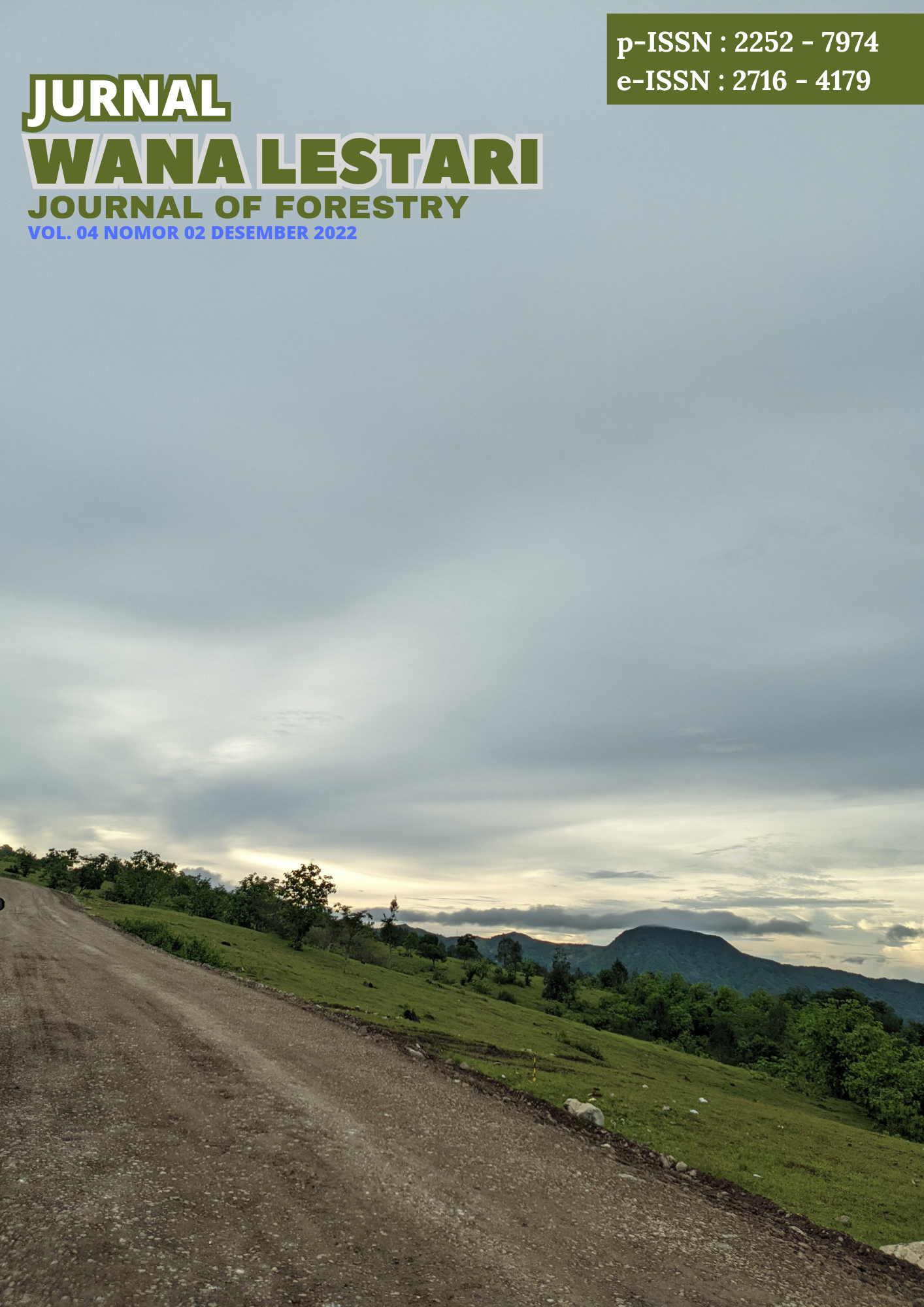Analisis Kelayakan Finansial Usaha Pemanfaatan Hasil Hutan Bukan Kayu (HHBK) Madu Untuk Meningkatkan Kesejahteraan Masyarakat (Studi Kasus Di Desa Loli, Kecamatan Polen, Kabupaten Timor Tengah Selatan)
Abstract
Forests naturally function as the foundation and direction of life on this surface of the earth. Besides the production of wood, forests also provide environmental services and nontimber forest products (NTFPs). NTFPs include honey, tamarind, resin, rattan, medicinal ingredients, and others. NTFP products have become a source of income as well as direct income for meeting the needs of many households and communities around the world. Loli Village is one of the villages in the Laob Tunbes forest area, a production forest in Regency South Central Timor. The Loli village community uses Apis dorsata forest honey bees, which nest in trees around the Laob Tunbes forest area. The purpose of the study was to analyze/evaluate the financial feasibility of using non-honey forest products as income from forest honey harvesting in Loli Village, Poland District, South-Central Timor Regency. Descriptive quantitative and qualitative methods are used as research methods. The data obtained was then processed and analyzed using quantitative data analysis techniques in the form of affordability analyses. The business analysis used takes the form of an analysis of production costs, production results, revenue calculation, net income calculation, break even point (BEP), payback period (PP), R/C ratio and B/C ratio. relationship. Based on the results of the analysis of the financial feasibility of using NTFPs, honey in the village of Loli has an R/C value of 2.15 and a B/C value of 1.15 and PP occurs at 0.46 or 0 years 4 months 6 days. From these results, it can be concluded that the business of using honey NTFPs in Loli village is feasible

 Maria M. A. Siu(1*)
Maria M. A. Siu(1*)







